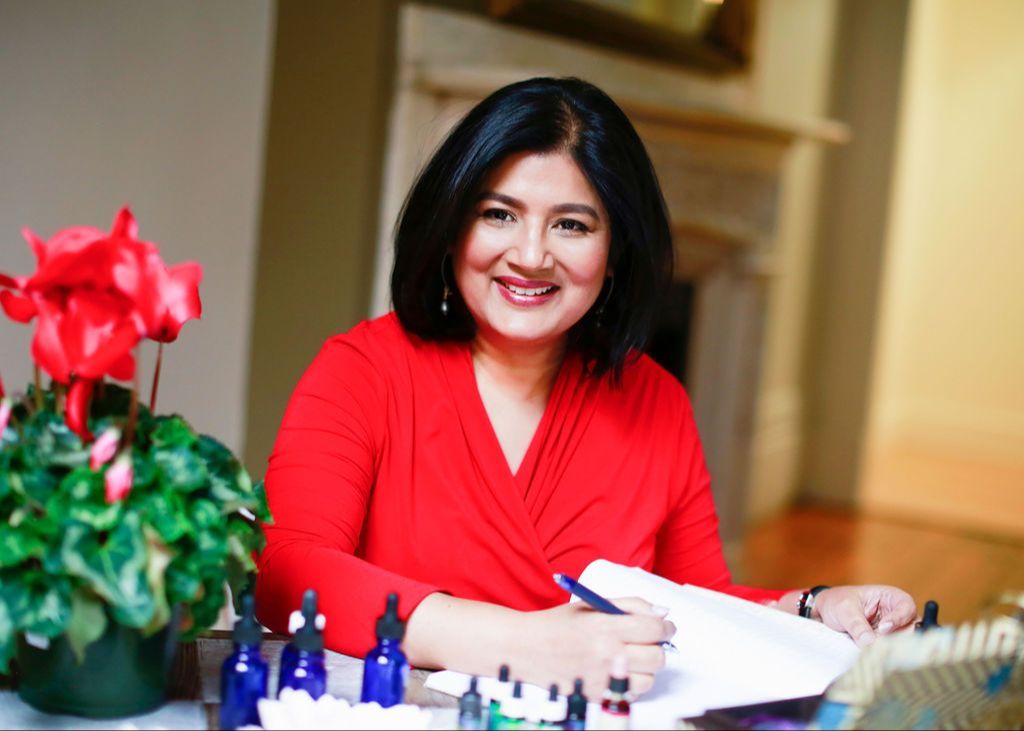
I often see tag lines on T-shirts, bumper stickers, bracelets, wall hangings, throw pillows, or elsewhere, such as Be Kind, Kindness Matters, Good Vibes Only, Believe in Yourself, Life is Good, Gratitude—all pointing to a growing awareness of values that are universal, seeping into the general culture, and into the lifestyle of millennials.
As the internet and travel shrink distance and culture, you can almost see a global philosophy taking shape. More and more, you hear the words, “I’m not religious, I’m spiritual,” marking the creation of a global tribe, living by universally accepted values, deciding what to believe about God or faith and departing from organized religion to forging an independent search for a sustaining belief system.
What does it mean to be spiritual?

In India, a lot of deities are depicted with one foot on the ground and one foot off, perhaps just barely touching the other leg. In yoga, it’s closest equivalent might be the “tree” pose. While you often see images of a spiritual practice with a person meditating or their hands folded in prayer, is that what it really is?
A year ago, I met a student who was graduating from college and trying to figure out what she was going to do with her life. Bubbling with energy, she was also struggling with anxiety and depression, though it would have been hard to know that from just meeting her. At some point in the conversation, she turned to me and said, “you know, we were never taught to be prepared for life!” Despite all the tag lines scattered everywhere about being kind, grateful, etc., they didn’t necessarily equip her for dealing with the challenges she was facing.
Her words stayed with me for a long time. If I ask you to fill in the blank: Life is… What would you say? What are the words that come to mind?
Life is challenging. Life is hard. Life is a bed of roses. Life is wonderful. Life is a game. What would be your description? That’s what your philosophy is. And, maybe it’s not a single line, but it’s a line that you find yourself using most often.
Now, let me ask you to fill in the blank again: My life is…or My life…What would you say here? My life is amazing! Or—my life sucks! Or something different? Can you see how your philosophy of life permeates into your general feeling about your life? When you begin your spiritual journey, you are starting to build a philosophy for your own life.
Being spiritual is like that yoga pose. It keeps you grounded and centered, but also allows you to see life beyond the daily grind. It is really a deliberate intention and attention to your inner life which can help build a foundation for your life, gradually diffusing into your philosophy of living.
Slowly, this will permeate your view of life, bringing your vision to actuality. It may not be an “elevator pitch” philosophy—perhaps something so big cannot be boiled down into the thirty seconds that it takes to go up ten floors. The elevator just doesn’t go up all the time either—sometimes it takes us deep into the bowels of the earth! Yet, even if the words are missing, as the foundation of your practice goes deeper, you can start to live from that tree pose.
Where can you start?
Many years ago, I was so overwhelmed with all the transitions and challenges in my life, I found myself waking up early while everyone else in my household was still asleep. Wrapped in a blanket on a couch, I would sip my tea and just try to pull myself together for the day. Memories, grief, regrets, sadness, anger would all take a place at my side.
I sat day after day watching dawn break with delicate streaks across the lightening sky. Slowly, healing began, and I became stronger. I started to reflect on my life and the lessons I was learning. That was the start of my spiritual journey—not all up and not always calm and steady. But I began to develop the practice of being with myself. My inner self! I didn’t even know there was a name for it. Connecting with yourself is a form of self-care and is the foundation of a spiritual practice. A ritual is a way in which time and objects come together—like the way you start your morning with either a run to your favorite coffee shop or brewing a cup of tea at home. While these are rituals you do for yourself, there are some rituals that nourish you at a deeper level. When you set aside time to connect with yourself, creating rituals that nourish you—instead of just helping you get through the day—you are laying the foundation for a spiritual practice.
A ritual is a way in which time and objects come together—like the way you start your morning with either a run to your favorite coffee shop or brewing a cup of tea at home. While these are rituals you do for yourself, there are some rituals that nourish you at a deeper level. When you set aside time to connect with yourself, creating rituals that nourish you—instead of just helping you get through the day—you are laying the foundation for a spiritual practice.
Like I told the college graduate I mentioned earlier, it doesn’t matter where you were, and what you might or might not have been taught, you can begin here. Right now. And, if you don’t know how or where to begin it can be exciting to explore what calls to you.
Simply pay attention to what calls to you!
There are many ways in which the inner journey calls to you. You find yourself exploring a class on reiki, crystals, cooking, gardening, or kickboxing! You might find yourself compelled to paint, walk in nature, or journal. Or, you may be drawn to prayer, meditation, or reading books about other people’s experiences.

There is no right way. You can only respond to what comes your way and what calls to you—all you have to do is pay attention. Because your journey and growth are so important, the universe will lay the crumbs for you to follow the path home.
There is a saying that goes, “You should sit in meditation for twenty minutes every day, unless you’re too busy. Then you should sit for an hour.”
While you don’t have to sit in meditation, what it really means is that the more challenging your life is, the more you need to connect with yourself. Running away through busyness keeps us from truly connecting with the painful emotions that might be lurking in the background.
However you choose to begin, as your spiritual practice deepens, you might find yourself saying, “Life is challenging, but I am a luminous warrior. I am grateful for my life. You know what, my life is wonderful!”
Challenges become opportunities to grow and evolve, to find your inner strength and confidence, and to build your capacity to deal with what life brings to your door. And, while your spiritual practice may begin with a walk in nature, an art class, or even sitting down to meditate, whatever form if takes, the more you connect within, the more it grounds you and increases your ability to deal with emotional upheaval and the storms of life.
If you want your life to be safe, comfortable, and predictable, you might find that you are bored, and drained of vitality. As Neale Donald Walsch, American author, actor, and speaker said, “Life begins at the end of your comfort zone.” A fulfilling, successful, amazing life begins with a spiritual foundation. As you leave your comfort zone, you come home to yourself.


